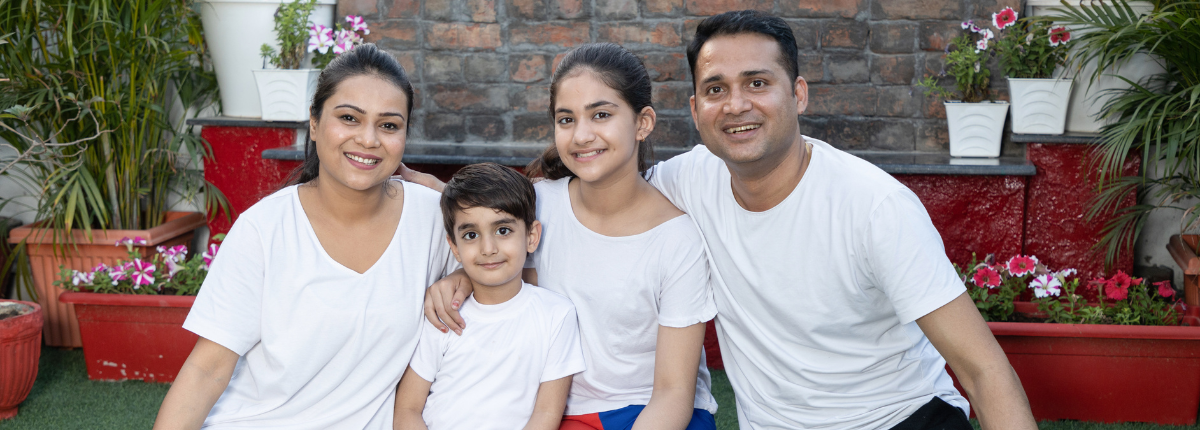This blog post represents the author’s views and should not be interpreted as professional/medical advice or endorsed by NEDA.
When I first became sick with my eating disorder, I was 11 years old. I didn’t choose to get sick because eating disorders are never a choice, but it was a coping mechanism that came out during a challenging time in my life. My parents were divorced and the strict visitation schedule took a toll on me. I needed a friend and anorexia was more than willing.
Questioning “Am I Sick Enough?”
Throughout my illness, which consisted of countless doctors visits and misdiagnoses, medical professionals put off my eating disorder as a gastrointestinal issue or an anxiety issue which was far from the truth. One thought loomed constantly over my head: “Am I sick enough?” Am I sick enough to be treated because if I was then maybe someone would treat me? Am I sick enough because if I was then maybe I’d finally catch a break?
But the truth is I was sick enough to leave school early because of how sick I felt or because I wasn’t able to focus. I was sick enough because I had become an empty shell of the once joy-filled, confident, and bright girl who I used to be.
The truth is there is no one way to define being sick enough. There is no number that defines how sick a person is and there can’t be. But we seem to think that way because of a lack of understanding about eating disorders and how stigmatized they are in our society. As a result people don’t feel validated or like they’re at that point where they deserve help, as if it’s something that has to be earned. And because of that, so many people are scared to ask for help, just like I was.

Numbers Alone Should Not Define How Sick You Are
Research shows that 9% of Americans have eating disorders, meaning around 30 million people in one country alone. Studies have also found that around 10,200 deaths each year are caused by eating disorders. If these people were given the safety and confidence to ask for help, if the medical field hadn’t turned their back on them and done them wrong, perhaps thousands of people could have been saved.
The DSM-5’s criteria for diagnosing anorexia nervosa states that a person must be in “x” percentile with “y” body weight. That is, if an individual shows other symptoms of anorexia but has not lost a significant amount of weight or if they still remain in the “normal” weight range, then they wouldn’t be classified as someone who has anorexia. This one varying characteristic can change a person’s life.
The DSM-5 also includes atypical anorexia nervosa, a type of eating disorder where a person can be within or above the “normal” weight range and still have all the same symptoms and medical complications of “typical” anorexia. However, many people in the medical field are not aware of atypical anorexia or that a person of any size can have the same health consequences as someone who is medically underweight.
This leads the individual to feel unworthy of help because many providers see only the numbers or how much weight has been lost when looking at people with restrictive eating disorders. This perpetuates weight stigma and the the idea a person has to be a certain size to need treatment.
Atypical anorexia should be treated the same way “typical” anorexia would be, but what differs is the amount of care received. Higher levels of care such as residential or inpatient treatment centers might not be considered for someone with atypical anorexia even if the person suffering requires that level of care. This means providers turn a blind eye to the person’s pain and how much care they actually need. How sick you are and what level of treatment you receive, cannot and should not be defined by a number- a number that is a meaningless sticker that is glued to every person who has an eating disorder, defining their worth and dictating the course of their life.

Numbers Alone Should Not Define How Sick You Are
Research shows that 9% of Americans have eating disorders, meaning around 30 million people in one country alone. Studies have also found that around 10,200 deaths each year are caused by eating disorders. If these people were given the safety and confidence to ask for help, if the medical field hadn’t turned their back on them and done them wrong, perhaps thousands of people could have been saved.
The DSM-5’s criteria for diagnosing anorexia nervosa states that a person must be in “x” percentile with “y” body weight. That is, if an individual shows other symptoms of anorexia but has not lost a significant amount of weight or if they still remain in the “normal” weight range, then they wouldn’t be classified as someone who has anorexia. This one varying characteristic can change a person’s life.
The DSM-5 also includes atypical anorexia nervosa, a type of eating disorder where a person can be within or above the “normal” weight range and still have all the same symptoms and medical complications of “typical” anorexia. However, many people in the medical field are not aware of atypical anorexia or that a person of any size can have the same health consequences as someone who is medically underweight.
This leads the individual to feel unworthy of help because many providers see only the numbers or how much weight has been lost when looking at people with restrictive eating disorders. This perpetuates weight stigma and the the idea a person has to be a certain size to need treatment.
Atypical anorexia should be treated the same way “typical” anorexia would be, but what differs is the amount of care received. Higher levels of care such as residential or inpatient treatment centers might not be considered for someone with atypical anorexia even if the person suffering requires that level of care. This means providers turn a blind eye to the person’s pain and how much care they actually need. How sick you are and what level of treatment you receive, cannot and should not be defined by a number- a number that is a meaningless sticker that is glued to every person who has an eating disorder, defining their worth and dictating the course of their life.
Eating Disorders Can Affect Anyone
Anyone can struggle with an eating disorder. It’s something which takes a common day-to-day practice (eating) and turns it into a full-blown disease. It’s an illness which morphs a happy, full of life person into a self-loathing shell (a person who loses themselves completely along with everyone and everything they ever cared about).
Eating disorders are extremely painful. Suffering from one is bad enough as is, but feeling like there’s no way to be freed, to get help or to ever be yourself again is a whole nother ball game. “Am I sick enough?” is that ball game. And the only way to win it is to realize that there is no way to tell whether you’re sick enough, nothing anyone says or a number on the scale will ever stipulate that.
Thinking “Am I sick enough?” means you are sick enough. Whether the question has popped in your head or not, you deserve recovery because everyone deserves a chance to live again and be the person they once were.
Realizing I Was Sick Enough
Speaking from my own experience, it’s so so hard. I was someone who always dove headfirst into their academics, relished getting gold stars on assignments and tests, and being picked by the teacher to present their project. These accomplishments gave me a feeling of utter joy and pride. But entering high school all changed for me when I became sick with my eating disorder to a point where it stripped me of who I was as a whole, causing me to lose everything, until I hit rock bottom so hard that there was quite literally no way to go but up.
I only realized that I was sick enough when I went from being an honor roll student to someone who couldn’t answer the simplest of questions. It took me losing myself and rebuilding every part of myself again to realize that thinking “Am I sick enough?” can be the most dangerous question.

Together We Can Change Lives
That’s the reality of eating disorders, and so this Eating Disorder Awareness Week I hope to bring attention to the dangers of asking, “Am I sick enough?” I urge everyone reading this, whether you’re someone who is suffering from an eating disorder, someone who cares about someone who is suffering, a medical professional or a novice in the world of eating disorders, to think about what we can do to demolish this question. Together we can change people’s lives and empower them to get the help that they need to change their lives, because as society we haven’t done much to make people feel like they are sick enough to seek help.
I hope that everyone can use my story as inspiration, a reminder or a voice to bring change to the world and help change someone’s life.
Resources
Are you concerned you might be struggling with an eating disorder? Take our confidential screening tool.
Are you looking for an eating disorder treatment provider? Find treatment in your area or online.
Are financial barriers preventing you from seeking the support you need? Learn more about free and low cost support options to connect with others and provide tools to promote recovery.





